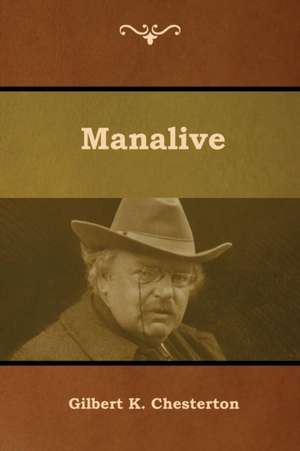Manalive
Autor Gilbert K. Chestertonen Limba Engleză Paperback – 8 mai 2019
Preț: 100.24 lei
Nou
Puncte Express: 150
Preț estimativ în valută:
19.18€ • 19.91$ • 15.100£
19.18€ • 19.91$ • 15.100£
Carte tipărită la comandă
Livrare economică 22 martie-05 aprilie
Preluare comenzi: 021 569.72.76
Specificații
ISBN-13: 9781618954848
ISBN-10: 1618954849
Pagini: 146
Dimensiuni: 152 x 229 x 8 mm
Greutate: 0.22 kg
Editura: Bibliotech Press
ISBN-10: 1618954849
Pagini: 146
Dimensiuni: 152 x 229 x 8 mm
Greutate: 0.22 kg
Editura: Bibliotech Press
